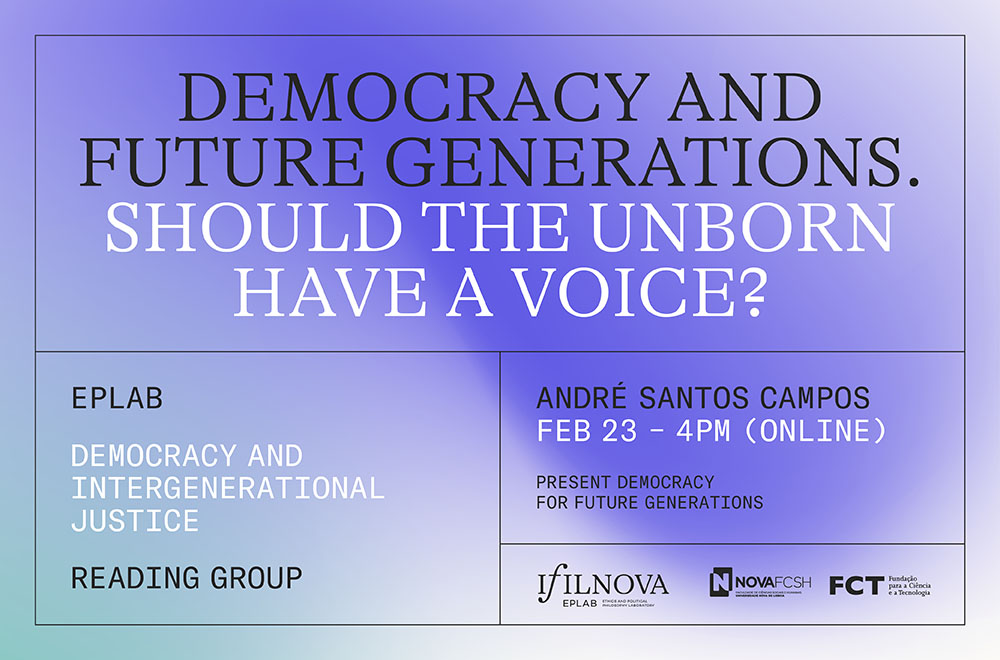André Santos Campos on “Democracy and Future Generations. Should the unborn have a voice?”

You are invited to join a new reading group on Democracy and Intergenerational Justice, under the EPLAB research project “Present Democracy for Future Generations” (PTDC/FER-FIL/6088/2020). Each month, the group will meet to discuss a published paper, or work in progress related to the project’s theme.
The first session will be hosted by André Santos Campos (NOVA University Lisbon), who will be presenting a paper by Ludvig Beckman called “Democracy and Future Generations. Should the unborn have a voice?”, J.-C. Merle (Ed.), Spheres of Global Justice (Vol. 2, pp. 775-788). Berlin/Paris: Springer.
To join the session on Zoom, click here.
If you are interested in joining the group’s mailing list, receiving updates to the schedule, Zoom invitations, and the selected papers prior to the meetings, please write to devoncass@fcsh.unl.pt.
The Democracy and Intergenerational Justice Reading Group is co-organised by Devon Cass, Inês Cisneiros, José Pereira and Zachariah Tailor.
Thompson, Dennis F. (2010). “Representing future generations: political presentism and democratic trusteeship.” Critical Review of International Social and Political Philosophy, 13(1), 17-37.
22 Abr – Axel Gosseries (Louvain)
"Intergenerational legitimacy: should we expect more than benevolent dictatorship?" (Work in Progress).
8 Jun – Zachariah Tailor (NOVA University Lisbon)
Takle, Marianne. (2021). “Common concern for the global ecological commons: solidarity with future generations?” International Relations, 35(3), 403-421.
27 Jun – Michael Rose (Leuphana University of Lüneburg)
Michael Kates (2015), "Justice,
Democracy, and Future Generations", Critical Review of International
Social and Political Philosophy, 18(5), 508-528.
20 Jul – Charlotte Unruh (TUM)
Greaves, Hilary, and William MacAskill. 2021. “The Case for Strong Longtermism”. Global Priorities Institute, Oxford University.

